|
I’ve talked about this before but I really need to talk about this in depth. The fight or flight mechanism is real and it must be brought under control or you will panic in a confrontation.
What brought this to my attention lately had nothing to do with martial arts but was concerned with cold water training. A friend had told me he was doing the Wim Hof cold shower exercises. I asked him about the breathing exercises and how he was doing them. He wasn’t, he was just taking cold showers. In essence he entirely missed the point of the cold-water training, totally off the mark. So, we had a few words and I told him that all he was doing was suffering through a cold shower and not at all training his core. The point of the training is not to withstand cold but to control your core reaction to the cold. You have to first master your breathing so that you control it under stressful conditions. It reminded me of all of those martial artists who spend forever training on physical conditioning, hitting makiwara boards and so forth, but they are not training their minds for reaction under stress. This is vitally important to face any dangerous situation. I have taught anti-flinch training for decades. It’s something I realized in my early practice that I felt needed to be addressed in the beginning of learning martial arts. It’s something I have spoken to Bas Rutten about in detail as he stresses it in his teaching and has videos on YouTube about it. Why is this important? Because if you are flinching you are not controlling your body, fear is, fight or flight is. I start by having my students stand with arms up in front of them and then their partner starts lightly throwing punches at them. If they flinch, pull away or in any other way show distress I have the partner slow it way down. There’s no hurry here. Over time the student will finally relax and learn to be calm and alert during the exercise. After a time you start to notch it up until you can pummel the student and they don’t flinch. It’s only from this position that you can truly and objectively observe and react during a fight. You are not in a tussle with your brain over what to do. The object in cold water training is to not let your body flee into the fight or flight mode. In this case when you are not trained and submerged in cold water you are shocked, you panic, hyperventilate and lose control or your body’s reaction to the stress. It’s not that you ‘man up’ and take the stress but that you have trained your core reflex to breathe deeply and settle down. You know the water is cold but it’s ok, you’re still in total control. If you had to jump in a lake to save a kid who fell through the ice you wouldn’t be doing much good if you were in shock and hyperventilating from the cold. The first time I did the cold water I was totally panicked and out of control forcing myself to stay there but completely unhappy and overwhelmed. Within a few days I was amazed that I no longer had the visceral reaction to the cold. Did it feel cold? Yes, but it didn’t matter. My breathing automatically settled down as did my heart rate. I had trained my core to take over and not panic. Anti-flinch training achieves the same goal; you overcome the primitive reaction of the brain and now face the danger calmly and clearly. You cannot be panicky in a fight. You will have no focus and no strategy. Like I’ve said many times before; you cannot train to swim standing next to a pool, you must jump in. My update on this is that you cannot train to swim in the ocean by training in a pool; the stress level is entirely different. Which brings me to the point of actually training with someone who will push and challenge you. You cannot train this unless your training partners are willing to push this to your limits. They have to want to beat you and test your techniques to failure. This doesn’t mean that they hurt or injure you. This can be done with respect and constraint. When I studied Aikido years ago I saw this in action at every class. The attacker expected to be thrown so they let it happen instead of resisting. I was very wary of this training and would often counter whatever the defender was doing. I was heavily chastised for this as being ‘uncooperative’ and mean spirited when in fact I was being forthright and honest about what was happening. Needless to say, I did not last long there. It’s got its own beauty but I wasn’t there for art class. Can you imagine a paratrooper who doesn’t actually train jumping out of an airplane but using a bungee tower? Think of how long it takes to acclimate yourself to jumping out of a plane with confidence and a calm mind so you can actually strategize on the way down. I’ll stick to the cold water myself. You have to train so that your core mind is engaged and awake. You need the stress to attain this state just like the cold water makes you face the stress. You can’t fake it in 45 degree water. You can’t perceive this or rationalize this you have to live this. No amount of form/kata training, bag work, cardio exercise or strength training can awaken this within you. You have to consciously do this over and over till it engages within you. The story of Miyamoto Musashi illustrates this at the highest level where two samurais meet each other while crossing the same bridge from opposite directions. When they face each other, they can both see that the other is quiet deep within, core alert, and they both go back their own way. This is not a display of machismo but an example of the deepest respect for they both acknowledged the skill and depth of the other. Generally, when I talk about these things the most common response from other styles is: we’re not animals, we are not trying to hurt each other, this is an art that works, we’re not brutal like MMA, etc etc. I get that but heaven help you is you get into a real conflict because you will freeze. Skill does not magically erupt from the bowels of your consciousness and make you a warrior. You have to train this, there's no other way.
0 Comments
We are all aware of the mind/body separation that we are supposed to overcome in our training. We want to calm the mind during duress and become one with the body. Through diligent practice we hope to meld the two as one. We see this as a psychological process that emanates from mental focus to bring the two in harmony. I think it this awareness goes beyond cognitive practice and is much more prevalent in daily life than you might expect. In the extreme examples of this there is the reaction of some men in war time situations where under the direst circumstances they suddenly become focused and still. They often describe as being detached from the moment while being in the moment. Athletes go through this at the peak of their ability. Rock climbers often talk of this experience and a type of euphoria it brings. This might be thought of us wei-wu-wei but I am talking about something much more visceral and fundamental to the human biology without philosophical concepts. This exists in all of us as part of our intrinsic physiology. I think of this as core consciousness vs surface consciousness. When under some stressful situations the mind sinks to the core and ignores the reactions of the surface. So, while in danger your body ignores the surface sensations and sinks to the core to react. There have been first responders that have been under extreme physical duress during a rescue but seemed immune to it at the time. They don’t realize their injurie till after the event. Over the years I’ve talked to many fighters who will talk about being hyped up in the dressing room but as they enter the ring their consciousness somehow automatically changes and they become still. They are no longer surface reactive. It is not uncommon for folks to comment on how still these folks are in the face of a fight. If you’ve had a good martial arts teacher you will see that when you throw strikes at them their reaction is unnervingly serene and in control. Their practice has led them to instantly sink into this consciousness. At the center of this is the difference between the reaction of the body’s surface and the body’s core. When it’s a surface reaction that stimulus overwhelms our consciousness. It’s a conflict between fight and flight. If we are startled we become flooded with sensations from the body. So, if while walking peacefully down the street and a dog suddenly appears barking fiercely we might withdraw and go numb overcome by not knowing what is happening. Our mind is frozen. If suddenly we are immersed in cold water we shiver and hyper ventilate. All of these are the autonomic nervous system taking over. How do we control this effect? How do we master our response? You might think that we can’t control our autonomic response but in fact we can. We can learn core control and awareness. I recently had a new understanding of this while practicing the Wim Hof breathing method and cold-water techniques. It is comprised of practicing breath retention and then, after a few weeks, you start taking cold showers or submersing yourself in cold water. I know, it sounds like torture. I have been surprised by guys telling me how horrible they think cold water training is. Tough guys tell me this, ‘no way I’ll do the cold water”. I understand it but for some reason it intrigued me. The first two times in the cold water was brutal and I jumped around and hyperventilated like a little child while cursing like a demon. Keep in mind I had been training the breathing for weeks. My first reaction in the water was pure surface consciousness; my skin was freezing and that is all I reacted to, it ruled my mind. On the third day something profound happened. When I stepped into the cold shower my consciousness immediately left the surface and sunk to my core and my breathing went deep and steady. My heart rate dropped to 52 BPM almost instantly. I was no longer cold. I did not shiver. The core took over and it was warm. My mind was clear, lucid and present. It’s like being inside a car and it’s cold rain outside. The surface knows it cold but inside of it is fine. Within a few days this core reaction became an immediate response to cold. No hyper ventilating and no adverse reactions just a deep, calm awareness and a sudden sinking of my breath. I realized it’s the same when I fight, this losing of surface consciousness. I want to stress here that this was not by training psychologically. In my breathing exercises I never thought about cold water training, I just did the breathing. The idea is that you’ve intrinsically programmed the core awareness by the breathing so when stress occurs, such as cold water, it will just take over. Well, it does. Being a complete cold-water pansy in the past I am still shocked at how it does not bother me at all. For the record the water is generally about 59F. I actually look forward to getting it colder. One of the major effects of this is now core consciousness is very apparent in every day life. I’ve bought a pulse and oxygen finger monitor to check my progress. In a matter of just six weeks I can consciously slow my pulse lowering it from 72 PBM to 50 BPM in about a minute. My mind now had a direct link to my core like never before. It makes you fundamentally aware of all aspects of your body in a direct and practical way. Qigong does this at one level but this is so much more hard core (no pun intended) and real that I am amazed by it. Surprisingly now I would much rather prefer a cold shower to a hot one as it energizes the body and makes me much more present. The point of this is that there are many ways to expand and deepen our training. While we may have great physical awareness and prowess in the gym we might have none when dealing with the elements such as cold weather. This broadening of core consciousness wonderfully unites martial arts training with adapting to our natural environment Who knew breaking the comfort zone of warm water would be so enriching and at the same time create a larger zone of comfort in cold water? I didn’t. Wim Hof
When I would spar with folks and start jabbing, they’d often reply, “Oh, a boxer, eh”? I’d tell them no, but I do incorporate it into my fighting. Most often they would have no idea how to handle it. For some reason in the traditional arts there is this great disdain for the jab. So, let’s think about this and what the reason for jabbing is. If you have a stick and a dog is barking and approaching you do you swing at it or poke it? If there’s an animal lying quietly in your way do you go up to it or poke it with a stick? You poke it if you have any smarts. Why? Because it tests the animal from a safe spot. You can see the animal’s reaction without being in its grip. A jab does the same and more. Jabs are not mindless pokes. They are calculated and intelligent. There’s technique, power and intent. If you think you can handle a jab because Johnny Q in your gym will throw some at you, you’re mistaken. It’s like thinking you can handle a fast ball because your buddy throws it versus Nolan Ryan winging it at you. You can’t. A real boxer doing a real jab is a formidable opponent. He’s not just poking the air. When you watch the MMA vs traditional fighters on YouTube you can see them pawing at the jab and falling for a combination. So many people in traditional arts throw regular, big, committed punches when they train. They get used to it and they can recognize and react to it. There’s a real sense of 1-2 movement here that is not realistic. At jab is meant to test you, disrupt you and reveal your reactions. It’s not a stick poking but a lance stabbing. The time you take to paw at it or move from it is the set up to take you down. Non skilled fighters will slip the jab towards the other arm that is chambered up to hit them. It’s called moving towards his power. This is something you learn to avoid only by continual practice. Also, when you jab you can see the opponent put their weight on the back foot to avoid it thus hampering their ability to move after that. You see them move their weight on the back leg and you can pressure them and attack. Similarly, a skilled fighter will act like he is moving his weigh to the back in an attempt to get the jabber to commit forward and then take his balance by moving sideways. A number of the MMA vs trad fights have ended on simple one/two combinations set up with the jab. If you practice it you can see it coming from a mile away. If you don’t you won’t see it and lights out. Jabbing is an intelligent way to fight. You can immediately learn a lot about your opponent. Many folks say ‘if he jabs, I will just step in and attack, it’s got no power”. Well, wrong, it does and you stepping in is what he wants so he can divert and viciously deliver the other hand. The other comment is “Well, I would just kick under it”. Ok, that might affect a boxer but I am talking about a martial artist using it. He should be highly aware of his vulnerabilities and cover them. Also, it’s a way to get the person to kick so you move to the outside and strike. There’re tons of strategies here. Another response, particularly from Aikido, is “I would grab his arm and do a wrist lock” or “step sideways and grab the arm and throw him”. Sure, have you ever tried to grab a whip? They don’t leave it out there as a gift to you. If you’ve ever watched real boxers train, you’ll hear the trainer yelling “You’re dropping your left, stop it” or “you’re leaving it out there” in attempt to stop those bad habits where someone can take advantage of bad technique. Boxing is based on intelligent theory and practice. They are skilled fighters. It would do you well to learn about this and incorporate it in your repertoire when you train. You might be surprised at what comes out of it. I strongly suggest you look at some of Marvin Cook’s “True Boxer Stance” videos on you tube. He’s an excellent teacher and he shows the great strategies of real boxing. Marvin Cook
“Defend yourself”!
“I choose not to”. “You made a statement, now defend it”. “No”. That might sound a little funny to you but this is an actual conversation I had with someone recently. They had made a very strong assertion that I knew to be completely wrong scientifically and I was challenging it. They would not engage in the discussion and walked away. They had their belief and that was that. This really got me thinking about the idea of self-defense. Self-defense…. The meaning seems obvious right? Just to defend one’s self, your body, right? But why does that just mean physically? Don’t we actually defend ourselves more mentally than physically in everyday life? In one sense maybe we should call martial arts body or physical defense versus self-defense although it could be both. I want to really look at this deeply because it is something we don’t normally do or tend to develop and I think it’s important to think about. Our ability to defend ourselves, in the traditional sense, can be easily tested: you fight. It’s here you see if what you believe to work physically actually holds up under pressure. Those of us who have trained for years can tell you countless stories of folks who truly believed in their martial/fighting ability but really had nothing to back it up. You’ve seen this with the fights in China between traditional fighters and some MMA folks. The traditionalists believed with all of their being that they had something substantial to withstand an attack but when reality tested it they crumbled. Their house was built on sand, not stone. Often this comes from sincere and genuine trust in what they’ve been taught by their teachers, from a faith they’ve had and trusted for years. It’s easy to go through life like this because we don’t get tested most of the time. We can carry on the techniques that were handed down without ever really testing or doubting their efficacy. In the world of combat all illusions get flung out the door, well mostly anyway. There is still the self-delusion that “I was holding back because this isn’t life or death..” which might have a tiny kernel of truth to it but for the most part is self-delusion. Now for the reason I am bringing this topic forward; can you defend yourself as in beliefs, political, spiritual or whatever? What are they based upon? Something that you’ve read or been told by someone else, a teacher, a pundit, parent, friend or other? Perhaps it’s learned from an ancient text or a spiritual teacher. How does the efficacy of your very core beliefs get tested? Why is defending them by vehemently demanding ‘This is what I believe!” considered an adequate defense? You can state whatever you want at whatever volume but this doesn’t make it true. This is really no different than stating I can physically defend myself but not be able to back it up. Since it is an opinion it is more nebulous because it is not substantial or objective but a subjective stance. It’s what you believe to be true. There isn’t a way to challenge it, an objective cosmic gauge of truth here, no hammer of veritas or anything. We just state that we believe it’s true so it is. But can we really defend it without falling back on just our belief as a reason? Why isn’t that belief built on sand? I remember years ago there was a owner of a very prosperous martial arts school on the east coast. He often talked about his glory days as a fighter in a famous kung fu school in Taiwan. He claimed to have won many tournaments and trophies. One of his students was a good friend of mine who was originally from Taiwan. He used to go there each summer for training. While he was there one summer he realized he was at the actual school this teacher had bragged about. The walls were covered in pictures of the history of the school and their tournaments. He searched it carefully looking to find his teacher’s photos. The pictures went back over 50 years and none of his teacher. He asked the head of the school about it and he didn’t even know the guy. He would have stuck out being American in an all Chinese school. The story was false, totally fabricated, the fellow never studied there. When he returned to the US he confronted his teacher who denied everything; they were just hiding his presence there. He talked to the other students, no reaction, couldn’t be true. So they had a belief and he had facts but beliefs won. He could back up, defend, his accusation but it didn’t matter they weren’t having it. I find this so strange. The 911 terrorists fully believed in what they did, so much so that they gave their lives. Does this make it true? No, not at all but if you’re on their team it’s true to them. If you’re on another team you think they are crazy and misled. This is how most abstract truths are whether political, religious or just personal. You can’t really prove or disprove them. They are built on the sand of the mind. How do you test it? Look at the churches of snake handling here in the US where they believe that they are immune to snake bites because of the Bible teachings. Here it should be an easy test. If they are correct, they won’t die of the bites. However, it’s not uncommon for these followers to die from the snake bites. Does it prove to them they are wrong? Nope, not to them, they just didn’t have enough faith or some other specious excuse. Similarly, the Boxer rebellion in China had its moment of truth when the villagers thought their qigong training would protect them from foreign weapons in 1901 China. They believed whole heartedly and they died. They could not defend their belief. This is rampant in human behavior, to believe in that which is not real, to base your life on it and in some cases to die because of it. How many preachers in recent times have declared their immunity to COVID-19 19 and then died from it? I am not writing this to attack religion. I am writing this to expose the core of self-defense. Can you really defend yourself, your core values, self-identity and beliefs and back it up with anything other than “I believe this”? We give ourselves such leeway when dealing with this personally yet we have no acceptance of the other persons stance which is opposite of our own. I was faced with this head on, with no leeway, from my first and primary Zen teacher Dr DeMartino. He was a scholar and a great Zen man. In one way he taught very little but in another taught profoundly. He challenged you to defend yourself, your idea of self, at every turn and gave you no respite in arbitrary views, theories or declarations. “How do you know that”? was often spoken by him. He didn’t fill in the blanks, he made you do it, if you could. He drove at the core of what I held true and made me truly question what and why I believed. This makes you seek a foundation rather than a hypothesis. This comes up at this time in my life because so many people are vehement about what they see as reality. They are willing to die for it though they haven’t taken the time to test it, to really see if it holds water or stands the test of time. They just believe it and that’s it. This is dangerous because it is ignorant. It is ignorant of facts, science and history. It is what you believe to be the truth rather than what the truth actually might be. You can believe in a cure or you can use the cure that has actually been proven to work. Given a choice which one would you choose? Can you defend yourself? Here is where societal norms, tradition and culture clash with reality. In many places in the East saving face is extremely important and affects everyday life from the smallest village to the largest city. No one ever wants to look like a fool and we want to be respected. There needs to be a balance between ‘I made a mistake’ and “I can’t/shouldn’t be wrong”. In a society where few people have any true status, just due to the vast numbers, saving or having face, mian zi (面子) is extremely important in everyday life. This happens to an extreme that most of us westerners can’t understand. It’s not a question of always being right but a matter of not looking like a fool and losing respect. As an example; a close friend of mine was visiting a factory in Japan. The foreman was explaining to an employee in English what a monkey wrench was vs an adjustable wrench. He was holding up the adjustable wrench and saying loudly “This is a monkey wrench and that, the pipe wrench (monkey wrench) is an adjustable wrench.” He was completely wrong and he looked to my friend for validation. Now the dilemma. He was trying to show his superior knowledge to a lesser colleague but he was completely wrong. Now he is asking for validation that he knows American tools and my friend is stuck because he knows the culture. If he corrects him then the foreman looks foolish and loses face. If he doesn’t correct him, he is basically lying and letting the employee take the heat. So, what do you do? Well, the damage he would do to his working relationship with the foreman is more important than the truth here. He can’t damage that, so, he lies and the foreman is happy to be validated. My friend felt quite guilty about having to lie to save his client’s relationship. One of my jobs entailed a lot of international travel for a client. I had been to Japan and many other places with them but they decided not to travel some of us to a tournament in China. They ended up have a very difficult time. They had a show in Beijing and then in GuangZhou. I asked a production manager what happened. He told me that the show in Beijing went really well but then they went to GuangZhou it went to hell. He said,” We really liked the venue manager in Beijing so we took him with us to….” I stopped him and said, “Oh no”. He said, “Why do you say that”? I said, “You made the venue manager in GuangZhou look incompetent by doing that. What did he do?” Well, he pulled all of his equipment off the job, the entire mobile unit, leaving them with no way to televise the show. They had to scramble to put together a rag tag production. All of this because he did not know the culture and he did not know how to recover from it. Mian zi at its worst incarnation here. This might be a trivial thing to Westerners but it’s very important in the East. Younger folks are getting away from this somewhat but it’s still an issue. I was at dinner with a Japanese colleague last March and she was talking about doing business in China. She is fluent in Mandarin. I casually asked her “how is it dealing with mian zi?” and she rolled her eyes and explained what a nightmare it is and how it messes up business. So, how does this effect kung fu/martial arts? Quite deeply unfortunately. In the course of almost anyone’s learning there comes a time when a traditional Asian teacher might show you something that you know really doesn’t work. If you’re in private you can deal with it but if you’re in front of a group, then all bets are off. This fellow believes what he does works and he is in the superior position, he is the “teacher”. To call him out on it in front of everyone is humiliating to him and he will lose face. He will most likely never be open with you again. In demonstration he shows how he handles a hook and you know it’s not going to work. What do you do? Maybe instinctively you don’t pull the punch and tag him, then what? I’ve had this happen and I immediately have said, “my fault, I knew you weren’t ready, cheap shot, do it again, I apologize”. The second time he blocks it and the world is a happy place. Yes, I know this sounds completely dishonest but it’s culturally correct. You don’t go to your niece’s recital and tell her that her singing is terrible, though it be true, you compliment her, right? I hope? Is it a lie, yes, it is culturally correct? What do you think? You really have to understand the cultural implications of this and not impose your view upon it as absolute truth. If you do you may never really learn what the teacher has to offer. This is especially true when dealing with the older generation who were born in the East. I had an incident many years ago where two fellows were asked if they’d like to meet another teacher that was coming to town. Sure, why not? Well, they didn’t get permission from their teacher, didn’t even think of asking. They met this other teacher and their teacher shows up, BANG, damage done. It looks like they are sneaking behind his back to see this other guy and he is furious and basically disowns them. He has lost face. They had no idea and they are now outcasts. They came to me and asked what they could do. I told them they were not going to like this but there is a way. There is a bow in Chinese culture that is particularly humbling. You bow on the ground in such a way that it is nearly impossible to be threatening or attack. Visitors to the emperors had to do this to prove their fealty. So, I told these guys, not only do you have to do this, but you have to do it publicly, you have to give him face. They showed up at his school, went to the center of the floor and dropped down. He said nothing for a while. He just walked about but everyone saw these guys prostrate themselves in front of him. He milked it and after several minutes told them to get up. After that they were his favorite students. It’s a cultural thing folks, it’s their court. This causes a dilemma in traditional martial arts because the ‘Master’ does not have accurate feedback on his skill level. Nobody wants him to lose face but that creates a huge falsehood about the technique. I was looking at an old video where I was demonstrating a technique on a student who is truly a good fighter. Now, years later, when I saw it, it was clear the technique did not work, he gave it to me. It really annoyed me and I called him to give him grief for something that happened 15 years ago. He had no recollection of it and I know it was well intentioned but it’s misleading. To him it was an act of kindness not dishonesty. However, it does me no good to work under the illusion it works when it doesn’t and surely misleads students. I don’t care about mian zi, I care about facts but that is not the Eastern way many times. Bas Rutten once said to me that he was fortunate that he had no ‘masters’ he studied under. I asked why and he explained that he did nothing on faith, just efficacy, and could deconstruct techniques to see what really worked. There was no tradition or hierarchy to contend with or be obeisant to, just the facts. He said they entered the floor on equal grounds and never worried about offending anyone, just learning. I can see the truth in this. I was in a situation a few years back where I was invited to a class to work with the students and demonstrate. I was blocking the punches of a fellow about 30 years younger than me and much taller. He had about a six-inch reach on me. It was casual, no big deal. He clocked me on the right cheek, so what, it happens, I wasn’t hurt. He freaked out apologizing to the extreme. He felt he had done me some big offence, he hadn’t. I told him to calm down and continue and eventually he did. Later I wondered what his view of it was. Did he lose faith in me because I missed it? Am I supposed to be untouchable? Did he fear retribution? Did he fear I lost face and he hit an older guy? So many scenarios but they don’t matter. We all get hit when practicing. Look at my face, isn’t it obvious? If you never get hit then you need to work out with someone better than you. It is likely in a traditional school that mian zi would come into play and add a whole different dynamic. Giving in to face here would damage the reality of the moment. The thing to take away from this is the traditional and cultural restraints that some cultures have. They are not meant to be deceptive, it’s just a matter of respect. Ultimately, I fear that this does damage to the martial arts by instilling a false sense of bravado into some things that do not work. There are so many examples of traditional masters losing fights today. They did not know they lived in a fantasy world of their own making. Hopefully they will evolve and grow into today’s standards of fighting. “There is a difference between a fighter and a martial artist. A fighter is training for a purpose: He has a fight. I'm a martial artist. I don't train for a fight. I train for myself. I'm training all the time. My goal is perfection. But I will never reach perfection.” Georges St-Pierre Now adays there is this swirling rhetoric about MMA vs traditional arts and the validity of training in either. There is no doubt that there are a lot of traditional martial artists out there who can’t fight because they never trained in actual fighting. However, this does not invalidate their entire training. Fighting is fighting and martial arts is also fighting, done properly, and an art. I’ve spent almost 50 years in the arts and I definitely see the weaknesses in traditional training but I also see a huge problem with the aging fighters. If you just train to fight what happens as you age? We all get weaker and there’s nothing we can do about it. It takes so much longer to heal when we are older that it becomes debilitating. So you’ve trained and fought through your twenties and thirties and now your body is breaking down; what did fighting do to prepare you for the remaining decades of your life? Did it teach you patience, understanding, compassion or empathy? Did it increase your overall awareness of the world around you? What do you have now that you are aging? Did you just train to fight or did you also do extensive work on your balance, hearing and sight which are common elements in martial training. Did you develop your ability to be totally aware of your surroundings as Myamoto Musashi states, ‘seeing the world around as a cat peruses a field, seeing it all at once. “….aware of everything and no particular thing. Here’s a man who developed not only unparalleled fighting experience but was also an accomplished painter. He developed both sides of his nature. Have you become more aware of nature and how the world around you affects you? These are things that many traditional martial artists spend a lot of time working on. So many ex-fighters are damaged physically and mentally. Their bodies are broken and their minds have never matured past the gym or the ring. Due to the damage their bodies have endured over the years they are constantly in pain. They find relief in drinking and medications. This is true for many athletes; living with the pain of a worn body. I live it too. There are definitely those that have remained sharp and aware but it’s not the norm. If you are training as a martial artist in the sense that you are training all of your being to become more in tune and alive then this does not diminish as you age. You find new ways to express your energy and focus. You may not be able to do the feats of your youth but there is a new expression of your physicality. In the east they often use the metaphor of a lotus unfolding to express this ever-opening awareness; the flower ever spreading its pedals. This is an essential part of development in a martial art. As my Sifu once said, “what is the worth of a man if at the end of his life he can only claim that he can kill or maim but not cure or inspire”? If you’ve only trained to fight then you have nothing else as you age. If you’ve honed your mind and body to harmonize with life then you are ever opening up doors to learning and expanding. You can learn to crush rocks your entire life or you can learn to build temples with them. You need to ask yourself what your goal is and where you want to be. Does being a fighter help you to be a better parent or spouse? What is it that you actually have at the end of it all? Where is the balance in your life? You can tear down but can you also build up? I must say that I have met a few fighters that had great epiphanies as they aged and became remarkable human beings full of compassion and wisdom. Somehow a light awakened in their consciousness and their years of fighting taught them compassion and kindness. This perhaps was never emphasized in their training but somehow this spark ignited. I would hope that if one is training in martial arts that this would be an overt expression of the art and not a rare occurrence. So George St- Pierre makes a great statement there which attests to the quality of his character as a martial artist who can fight. Myamoto Musashi Many martial artists go through their entire training career with having never truly tested in a real fight. They spend their lives in blissful ignorance and a false sense of security believing in their ability because it has never been actually challenged. They have a very strong belief in their teacher and the effectiveness of their art. Some believe that their skill level is so advanced that they cannot spar because they would kill their opponent. That may seem farfetched but I have experienced that first hand myself. “Dude, I’d spar with you but my level is so advanced I might inadvertently kill you”. Well if you are that advanced then maybe you should have more control pin head. Maybe they’ve sparred with folks in their school or style and done well and felt that proved their skill. This is fighting the familiar and does not really reflect the real world. So, there are many folks out there who, thankfully, have never really needed to use their art and may never need it. As a result they will never really know if it works but they absolutely believe it does.
Then there are those that have been tested. Whether it’s a street fight or just sparring someone from another style who just doesn’t care if they hurt you; it’s a rude awakening. I had an acquaintance who was a black belt in Korean karate. He was very diligent in his practice and had a bit of an ego. Actually, he a bit of a jerk. He went to a party where there were a lot of bikers from a well-known gang. He decided that he was so bad ass that he would dump a beer on one of the guys head. He was taken out in a stretcher. He told me that he was stunned that nothing he did worked. They didn’t want to spar, they wanted to destroy. Another time a jujitsu instructor was giving a seminar at a local school. He started hitting on one of the women there who was married to the owner’s son. The son told the jujitsu guy to knock it off. He didn’t and challenged the son. Not thirty seconds later the jujitsu guy was laid out in the middle of the room. The owner’s son came from a special forces background along with his martial training. You never know who knows what. My experience is that one of several things happens when you get your butt handed to you in a fight especially when you went in over confident. The first: “I’ve spent years training in this art and it just doesn’t work, I’m done!” That’s the end, they stop training. I’ve seen this happen many times. I get the frustration and the humiliation here but failure should cause you to succeed not recede. Second: “Well if I’d know he was going to do that then I’d……” This is a total BS line that people tell themselves. I can’t stand it when people say this; it’s beyond disingenuous. They did not know, yep, absolutely! You cannot know what’s going to happen in a fight. You did not react intelligently, you got beat, period. Third: “I’ve only being doing this 8 years, after 10 years is when you can fight. Come back in 2 years”. Yeah, that never really works. I actually had this happen decades ago. A fellow I was working with was bragging about his art, (we all do as beginners) and I asked him to spar. He said, “No, I’ve being doing these 81/2 years I won’t be ready till 10.” So being the schnook I am I waited till ten years and asked him again. He declined. I was just busting on him. Another part of the 10-year argument is “My teacher could beat you but I can’t yet”. Maybe……. Four: “I do this art for the spiritual practice, not fighting. I will continue to do this as a spiritual endeavor and I will obtain a ‘higher’ fulfilment than just the folks who practice this as a fighting art.” Okay, it is a martial art and yes you can certainly develop an acute awareness along with a fighting skill BUT you should be able to fight! If you want to develop spiritual awareness join a temple not a martial arts school. Five “He beat the hell out of me, how do I beat him? What do I need to do to gain that skill”? This is the minority version but it’s the most important one. It’s what I went through. Shame, disgust and depression…. had I wasted my time? Is my understanding so wretchedly bad? Can I actually learn to do this? This is a very difficult time in a martial artists life. You may have studied a total BS art and now you know it or you just never developed the heart to bring it to a fight. Either way it’s an existential awakening to your vulnerability and the horror of a real fight. Like I’ve said many times; real fights are chaos. If you were beaten in a legit full contact sparring match you can often get someone to help you through this. They observe and show you the fallacy of your ways. If it happens on the street and you survive you can seek those who have had similar experiences and they can help you train. Back in the very early years of my training I had a personal vendetta with another fellow. For a myriad of reasons we did not like each other and it eventually boiled over into a fight. He was a street fighter from a very tough area and made no bones about his desire to hurt me. He dropped me in seconds. He attacked, attacked and attacked….he was relentless, I drowned in his punches trying to block them. Thus, the beginning of my coming aware that being defensive is futile. A year or so later we fought again, this time bashing each other for several minutes. It was brutal. I reached a point where I hit him with all I had left and he didn’t fall. He dropped me but it was a battle of attrition, not a slaughter like the first one. The third time I fought him I had his number and the fight was short and I walked away unscathed. Each time I learned, became more confident and decisive. I also realize I may have gained some skill but I was still very lacking in many areas. This was just the beginning of my journey. After decades of martial arts, I’ve found that those who have learned from their defeats have a very different view than others. Some of the great fighters I’ve known have been the humblest. They will tell you about the liver shot that took them down or the scrawny guy that just wouldn’t quit. They know they can lose and take nothing for granted. Some are arrogant but many are not. They don’t fight for stupid reasons. Their egos are not fragile and they’ve got nothing to prove so their minds are clearer. It’s good to learn what you are truly capable of doing. The question is can you deal with failure? What will you do when you get back up? "Winning is great, sure, but if you are really going to do something in life, the secret is learning how to lose. Nobody goes undefeated all the time. If you can pick up after a crushing defeat, and go on to win again, you are going to be a champion someday." Wilma Rudolp I was flying back from working fights in Vegas recently and reflecting once again on the role of sparring and martial arts, particularly kung fu. I have often stressed the importance of it and how it trains the mind for the type of stress that only real fighting brings. You don’t need to be bashing each other’s brains out to get this but you do have to bring on real pressure and threat, though controlled. I have tried many times to bring this home to people but just always seem to fall short. But here I am on an airplane looking at the cockpit door and voila! It hits me. Not the door, the idea. If you were on a plane and it was in distress who do you want to take over for the pilot, another experienced pilot or someone who trained in a flight simulator? Does this make it real enough for you? Perhaps the person who trained in the flight simulator will have enough tools to pull it off but the experienced pilot will definitely have the ability. Kata and point fighting and all the other variations are simulators and have little bearing on real life emergencies. The pressure you feel when completely overwhelmed cannot be imagined. The absolute urgency of the moment numbs the mind and if you’re not trained for it you freeze or panic. I was driving in a blizzard in Iowa the week before that fight. It was a nightmare and I’ve never seen anything like it, ever. Wind blowing at 45 miles an hour creating what they call a ground blizzard, pure whiteout across the plains. I was in the passenger seat trying to navigate for the driver who was awesome. In the back seat was one of the ring judges from the night before. He was clearly panicked and kept talking and asking questions when we inched down the road, cars strewn about. It took close to 3 hours to get to the airport and would have normally taken 50 minutes, literally a straight drive up Route 29 north IA. When we stopped, I said to the driver, “That was a horrible nightmare, absolutely terrifying! You were great”. The fight judge looked at me and said, “What, are you kidding me? You were quiet and calm the entire time navigating and now you say it was terrifying?” I replied, “Yes it was but it does no good to be anything but absolutely still under such great stress, a busy mind is an impediment. I’ve been in extremely stressful situations before so I know how to handle it. Sorry, but your constant talking and questioning was a complete distraction”. The driver dittoed it. He said nothing. The point here is that only real stress can prepare you for these situations. A flight simulator will definitely teach you technique and some skill but that resides in the cognitive part of the brain. Stress forces us to the more primitive part of the brain and we must unite the two. Someone who trained in a flight simulator will be much more qualified than someone with no training at all but still will be greatly disadvantaged in a real emergency. You really have to grasp this with your whole being and realize the truth of it. Many martial artists believe that when the time comes the ability will arise from the training; it’s nonsense. You see videos all the time on YouTube where an experience martial artist, with no real fighting background, gets absolutely crushed in a real match. Like I’ve said for years and will keep saying, you can’t train to swim standing next to the pool and you can’t train for the ocean in a swimming pool. Please think about it when you go about your training. It can really make a difference in a life and death situation. Spoiler Alert: they run out of gas before hitting the ground and the plane stops! Gotta love Bugs!
A few years ago I was having a conversation with Eran Bert, who is an Israeli martial artist who trains the military and elite body guards in Israel. We were talking about the distinction between sports fighting and real life and death attack. He made the comment that in real life confrontations ‘you don’t win fights, you survive them.’ This really made me think. This is a very important distinction. A fight in the ring ends with a decision or a KO and the goal is to win. If you don’t win you go home to train again. In a life and death battle you either survive it or you die. There is no sense of winning and losing, no title, no purse, no fairness, rules or glory. That you survive and continue to live is the single and primary goal. This really changes your perspective in training. He told me that statistically it takes 12 blows to ‘soften’ an opponent before the final strikes. The adrenaline is so high and the endorphins so strong that the body can take a tremendous amount of injury before it fails. People who do not train for this level of intensity will not succeed in battle. It’s really a scary premise when you think about it. After a long talk about the statistical odds in a real fight I said to him, “You just don’t want me to sleep at night, do you?” He laughed. The reality is that this brings your approach to training to a whole new level. I am talking martial arts here, not sport fighting. Here you use whatever means necessary to win; there is nothing ‘fair’ or clean here. I’ve spent thirty years of my life around the world’s best boxers and martial artists and have total respect for them. This does not mean that sports fighters are not tough or skilled, they are, but their skills are honed for a specific type of battle within a framework. This is not to imply that they don’t also train for real battle; they may or may not, but in sports fights there are weight classifications to balance out the matches. You don’t see a heavy weight fighting a light weight. What I am trying to convey here is that if you do not face this reality in your own training you may be woefully inadequate in actually surviving a fight. If you are attacked on the street and you are 5’3” and 123 lbs and your attacker is 6’2” and 190 lbs you don’t get to call off the attack to make it fairer. Sports fights are competitions among equals. Muggings are not. This does not mean that you have to be brutal and vicious in your training but you do have be intelligent and effective. Special Forces go through rigorous training without killing each other. There is a way to do this in a controlled environment. It is my contention that most people that train in martial arts in the US really don’t want to confront the harsh realities of violence and what it takes to survive. They want to be comforted and assured that what they practice in the school will give them a guaranteed win in a fight. I’ve seen instructors tell their class ‘this works, you will be safe with what we are teaching’. I’ve observed many classes in different schools where the students, especially in women’s self-defense classes, think they have power and skill but they really don’t. What they are being taught might work in the controlled environment of a class but not on the street. It’s hard to entice new students without promising these salves of safety. On the other hand, it is dangerous to have a false sense of security. Years ago, I was invited to watch a women’s self-defense class at a local university. The teacher brought in volunteer male students to work with the women to make it more realistic. I thought this was a noble but flawed idea. Every technique the women used worked on these guys. From breaking holds to delivering blows, they all worked. I was asked what I thought about the class. They were practicing breaking grabs and choke holds at the time. I asked if I might try something and the teacher agreed. I took out a twenty-dollar bill and laid it on the floor in front of the guys and said, “Whose ever hold cannot be broken can have the $20”. Not a single guys hold could be broken after that. I explained that their incentive was merely beer money while on the street the incentive was to not go to jail; a much greater incentive. The women were disheartened and the teacher annoyed but so what? Would you rather be informed or deluded? Eran asked me why I don’t have many students and I replied, “It’s not because we are violent here, we are not at all, but I will not sugar coat reality and they don’t like that. I will not guarantee they will be safe but they will increase the odds of their safety’. His response was, “If you were in Israel you’d have a full school every night”. I am well aware that my style of teaching causes consternation here. It’s strange because there is no violence here but telling people what really happens in a fight is not something they want to hear. Many people come to me to learn forms or secret hands that they think will protect them. They are disappointed that I don’t entertain these ideas. Some have come through my door with years of martial arts yet have no ability to stop the simplest combination of punches. “This isn’t how we did it in my school” is often their refrain when they can’t handle it. I do not condone bullying or ‘bad ass’ attitudes here, but I do condone reality checks. Can you take pressure and can you handle chaos? If not here, where will you learn it? My parallel life is in music. If you want to join a band and say I can play guitar, good, let’s do a song together and see if you can hang. Everyone thinks they can but can they really? I’ve been around professional musicians for years. Now and then someone will show up who has played as a hobby or was in a high school rock band but that is the extent of their ability. Regardless they are full of confidence. They will ask to sit in on a jam and when the playing starts, they will invariably and immediately flounder and get lost asking, ‘what key is this in? what are the chords’? Only to hear from my friends “I thought you said you could play”? There is nothing cruel about this or condescending, just facing reality. Real musicians will immediately discern what keys it is in and the chord pattern without being informed. They can anticipate what is coming and meet it head on. This has happened before, they are used to this, it is ingrained in their playing. On the odd occasion the guest can really hang the response is simply an accepting smile or simply ‘cool man’. There is no difference between this and real combat. You will get no clues, cues or retakes. The attack will happen and your response has to be quick, effective, immediate and fierce. If you do not train for this you will not be ready for this. There is no magic! Practice what works. My teacher told me size doesn't matter........now I'm wondering if that's true.
After almost 50 years in martial arts I can tell you that I am vehemently against sparring……when you first begin training. Why? Because until you learn to control your flinching and fear reflexes you are not really gaining anything you're just doing everything you can to protect yourself and not get hit. You don’t learn in this situation. I’ve seen many schools start sparring within one or two days of enrolling. This is insane. You don’t start football on the gridiron or swimming by jumping in the ocean. You start in a controlled safe environment as you develop the tools to swim or run the field. If you were put in the ocean the first day you’d be in panic mode from the start. I spend a lot of time with my students when they first begin lessons teaching them to watch an attack with no interception. Hands up in front of them or by their sides and just have someone throw very controlled punches at them slowly. If the student is flinching then he is overwhelmed and fearful. We do this until there’s a comfort level involved. The student learns to watch the punches without fear. After they accomplish that they learn to evade by just moving their body, no blocking. Slipping a punch, moving side to side or tucking back just a few inches to watch the punch miss them. Again, being aware of flinching. When the student is comfortable with this then they start moving about, learning footwork to avoid being hit. Eventually they bring their hands into play to intercept and counter but not until they are able to calmly engage in the play. From here on you can step up the intensity to heavy sparring. Sparring is absolutely necessary to learn how to fight. Shadow boxing, kata, whatever, do not teach you to fight under pressure. The stamina a real fight takes up is remarkable. You would never attempt to swim in the ocean, like a Navy Seal does, without the rigorous training to prepare for this. You cannot practice tennis against a wall and expect to play against a real competitor. You would not just train batting with a pitching machine and expect to go against a Major League pitcher; it would be suicide. So, you can in no way expect to be able to fight without sparring in real time. There is nothing like being cracked one and trying to continue to fight. Most people when struck become very self-aware and lose sight of their opponent. Then they are prey to their attacker. I was taught years ago that you need to get hit really hard and realize that it didn’t kill you to harden yourself in a fight. I personally thought that was BS when I heard it but reality opened my eyes later. I got hit many times when I first sparred and if it hurt too much I stopped the bout to recover. There was a safety net in it. A year or so into it I was sparring a guy who was a real bully, like something out of a bad movie. He hit me pretty hard and knocked me down and I stopped the match. I was weak, had no stomach for it and somewhat of a coward. Later he was sparring another guy and was pummeling him. You could see the glee in his sadistic eyes as he hit this guy. The other kid wouldn’t quit, had real guts, but was getting creamed. I went into a rage and stepped between them. The bully lit up, ‘back for more? Great!” I didn’t care what happened to me I wanted to crush him for being such a cruel person. We had a bloody bash but I bested him. He was stunned. This happened because I did not care what happened to me, I was fully determined to flatten him at any cost. This was the turning point for me in martial arts. If the first time you face this is in a life and death situation on the street you are most likely doomed. The skill doesn’t magically arise in real life as many schools teach. You have to earn it. As the saying goes ‘it’s not what you do when you get knocked down but what you do when you get up again’. To this day I do not enjoy violence at any level but I know what it takes to win a fight. I am not a fool thinking I am unbeatable; I am not young. I once told Renzo Gracie that I submit to gravity now at my age. I would have never understood what it takes if I had not sparred. RESPECTFUL sparring/training is absolutely necessary to condition the mind and body in a fight. I know nobody really wants to hear that but it’s true, not just for boxing but for all competitive physical endeavors. Practice what is real. I've been practicing staff in the Dojo for weeks now, this lion is toast! |
The MomentIdeas, articles, lessons, and retrospective moments. Categories
All
Archives
March 2021
|
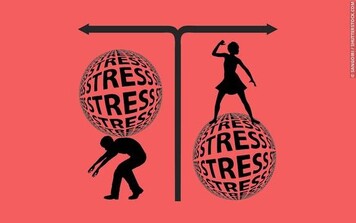
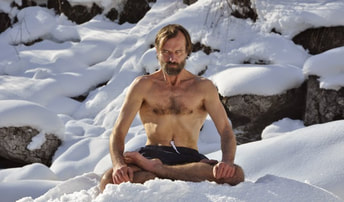
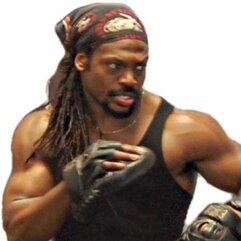

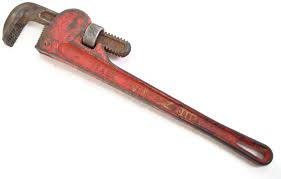
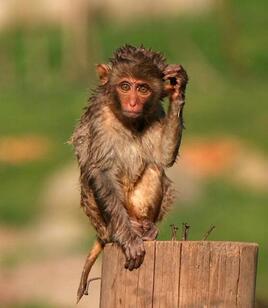
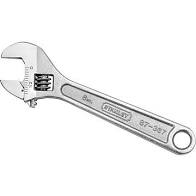

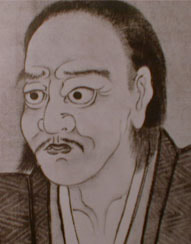
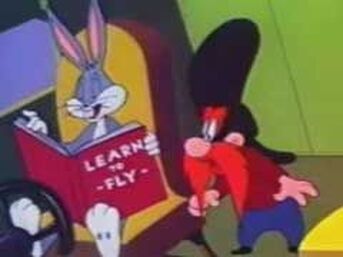
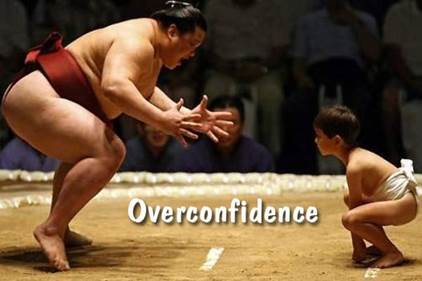
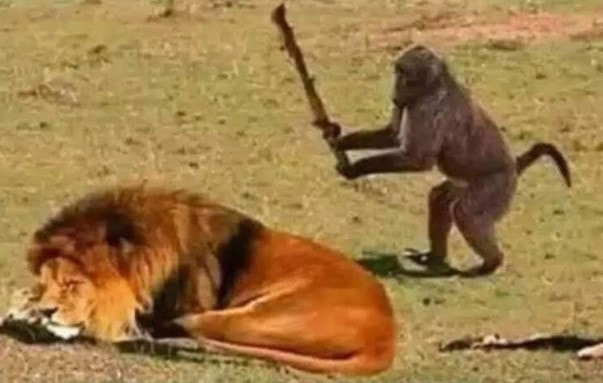
 RSS Feed
RSS Feed